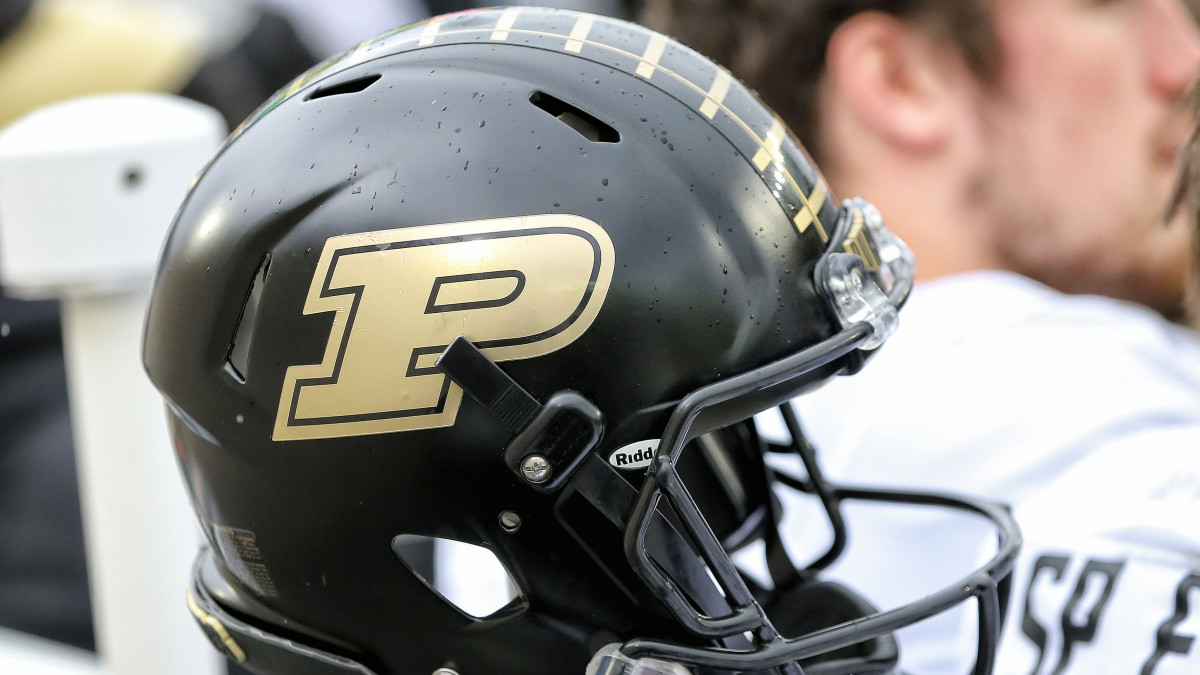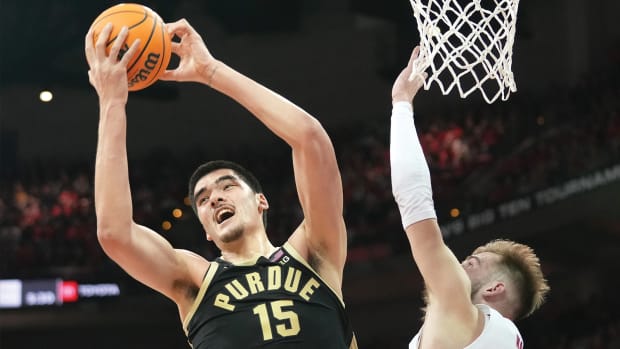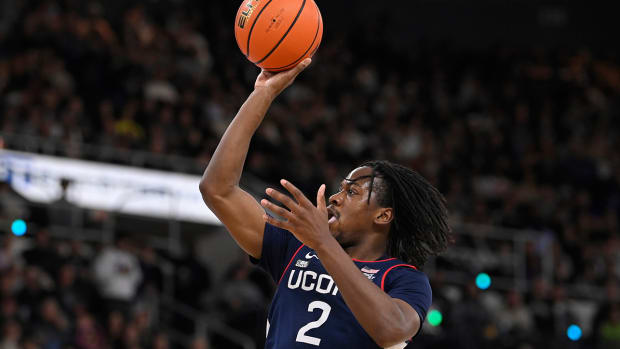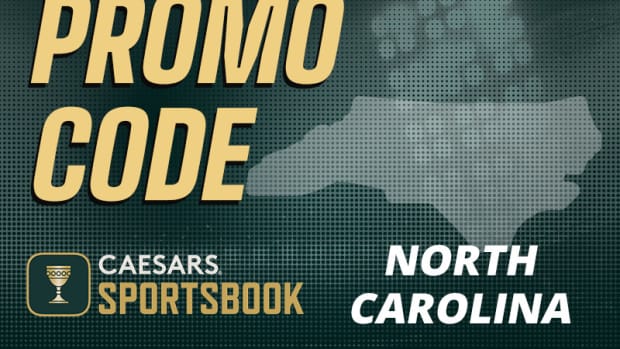Why Purdue Faces Major Obstacles Legally, Logistically in Sports Betting Ban

Indiana is one of 13 states to have legalized sports betting. But that doesn’t mean everyone in Indiana can bet on any game. Let’s say you’re an employee or a student at Purdue University. Whatever you do, don’t bet on Purdue games—regardless of whether you pick the Boilermakers to win or lose, and regardless of the spread or the over/under.
How come? Because in the not-so-distant-future, you could be fired from your job or kicked out of school.
On Thursday, the Board of Trustees of the West Lafayette-based public university approved the adoption of a so-called “sports wagering policy.” The policy applies to all faculty, staff and non-athlete students (Purdue’s student-athletes and coaches, like those at other colleges, are already barred from betting on sports by NCAA rules). Purdue’s new policy expressly prohibits gambling on sporting events involving Purdue teams, coaches or student-athletes. It governs wagers made in person as well as bets made online and through mobile technologies.
The university’s statement does not offer reasoning behind the policy’s adoption. It notes the “urging” of faculty members and staff in the athletics department to pursue a policy. With that in mind, one possible reason might be a concern about the optics of professors betting on games played by their students and potential corresponding worries that professors might be improperly influenced. Students betting on games played by their classmates might also raise apprehensions.
The policy is not yet in effect and it might be months before that happens. It will only be rolled out once implementing rules for punishments and related procedures are determined. As discussed below, developing effective methods to enforce the policy and potential legal challenges could slow or altogether stop its adoption.
As currently envisioned, Purdue faculty and staff who violate the policy would be subject to potential termination, though less severe punishments might apply instead. The university expresses that administrative leaders, including the vice provost for faculty affairs and the vice president for human resources, will develop “sanctioning guidelines” for faculty and staff.
As to student violators, possible sanctions have not yet been determined. The policy notes that the vice provost for student life, the dean of students and others will develop sanctioning guidelines for students.
That said, at many universities there are four basic types of sanctions for non-academic misconduct. The lowest level is a reprimand, which is a simple statement from the university that the student violated a rule. A reprimand also warns him or her that another violation will lead to an actual punishment. One level up is probation, which might impose restrictions on the student, such as forbidding him or her from study abroad or requiring the student to perform community service. One level further up is a suspension, which requires the student to take a leave of absence of some duration from the school. A suspension is usually noted in a student’s official transcript, a fact that can become problematic for the student should he or she later apply to law school or grad school. The highest level of penalty is expulsion, which involves de-enrollment and is tantamount to a permanent suspension. Purdue’s conduct regulations note that students have opportunities to contest adverse findings of fact and appeal.
Sports betting became legal in Indiana on Sept. 1
Indiana is one of 12 states to take advantage of the U.S. Supreme Court’s decision last year in Murphy v. NCAA, where the Court held that the federal ban on sports betting in 46 states was unconstitutional. Sports betting was already legal in Nevada since 1949. The state was exempt from the federal ban. Indiana joins New Jersey, Iowa, West Virginia and eight other states to legalize sports betting in the aftermath of the Murphy decision.
Indiana’s law (HB 1015) permits people who are 21 or older to bet on sports at brick-and-mortar sports books at casinos and racetracks and through Internet and mobile devices. The Indiana Gaming Commission oversees this newly legalized industry. The agency reviews applications for gaming licenses and ensures that businesses and consumers comply with the law.
Notably, Indiana’s law allows betting on NCAA Division I sports, in addition to professional sports (betting on esports, however, is not allowed). This is a distinction from New Jersey’s sports betting statute. In New Jersey, it is lawful to bet on pro teams but not on any college games that occur in New Jersey or that involve any New Jersey college team. In contrast, in Indiana an adult can bet on college sports, including games played by the Notre Dame Fighting Irish, the Indiana Hoosiers, the Ball State Cardinals, the Butler Bulldogs, the Evansville Purple Aces, the Valparaiso Crusaders and the Purdue Boilermakers—unless, of course, he or she is employed by Purdue or goes to school there wants to bet on a Boilermakers game.
Purdue will face an upward hill trying to enforce its sports wagering policy
Logistical issues present an obvious hurdle for Purdue. How can the university ban an activity that it probably can’t detect?
In theory, the university could monitor Internet activity on university servers and learn when a person is accessing a website used for placing sports bets. Of course, the university policy doesn’t prohibit all sports betting—only betting on Purdue games. This means the university would often, if not most of the time, flag legal activity by members of the Purdue community on betting websites.
Even if the university could somehow discern when bets on Purdue games are made, it’s not clear the university would always know the identity of the person placing the bet. The person might use a campus visitor or using guest account. He or she might also take steps to cloak their online identity, including through use of a virtual private network. This person could also simply use their wireless network in lieu of the campus network. The list of ways around detection seems long and not particularly hard to figure out.
The university is also unlikely to gain cooperation from casinos and retail sportsbooks to voluntarily turn over customer files. Those operators have no legal obligation to turn over records. Similarly, Purdue has no subpoena power or a credible legal argument to require that private companies to turn customer files.
The Indiana Gaming Commission, meanwhile, is not a private security firm. It is a state agency that will enforce state law, not unique university rules. If the gaming commission believes that students at Purdue who are under 21 are betting on sports, the commission might take action. After all, the law requires a sports gambler be 21 or older. But the same would be true at any of the state’s universities.
It’s possible that Purdue’s students, faculty and staff could report on violators to school officials. A librarian, for instance, might see a student surfing a betting website while seated in a study cubicle. Or perhaps a student sees a roommate on such a website. To that end, the university has adopted an honor code. However, the honor code does not contain an explicit duty to report. Many students, faculty and staff might feel uncomfortable “tattletaling” on someone who is engaging in an otherwise legal activity.
Likewise, the university can’t require students—or faculty or staff—to turn over their personal phones or computers for inspection. A professor might unwittingly become the target of further monitoring should he or she visit a betting website while using a school computer. Yet if that same professor uses their phone or personal computer, detection would become far more difficult.
Purdue’s policy could face legal challenge
Universities, including public ones such as Purdue, have significant discretion to set conduct policies for members of their communities. This is true in regard to suspicious academic behavior, disruptive or unruly acts, possession of firearms, electronic recordings and other activities that might not run afoul of the law. Stated differently, universities can “outlaw” behavior that might be allowable outside of the campus. Purdue’s regulations indicate the school prohibits a wide range of activities, including the vaguely worded “any conduct that substantially threatens or interferes with the maintenance of appropriate order.”
Public university restrictions on activities are perhaps most controversial in the context of campus speech codes. These codes have been used by universities to deny university forums to speakers of certain viewpoints—typically viewpoints that are viewed by some as controversial or offensive and that university administrators fear will spark disruptive protests. Campus speech codes at public universities have been the subject of litigation on grounds of the First Amendment. The basic argument is that the First Amendment protects freedom of expression and public universities are required to honor that right.
It’s plausible that a similar argument could be raised against Purdue’s sports betting ban. It would need to be brought by someone who is otherwise eligible to be on sports in Indiana (i.e., someone who is 21 or older, a classification that would exclude most Purdue undergrads but include faculty and the vast majority of graduate students and staff). This person could contend that betting on sports is an expression and protected free speech.
Would such an argument work? Possibly, but it would face obstacles. As Ryan Rodenberg detailed in a Legal Sports Report story from 2018, the U.S. Supreme Court has previously rejected an argument that there is a Constitutionally protected “right to gamble.” This rejection arose in the 1993 decision, U.S. v. Edge Broadcasting, where Justice Byron White (the only U.S. Supreme Court Justice to play in the NFL) observed that gambling implicates no constitutionally protected right.
However, White also limited this deduction for instances when the activity “falls into a category of ‘vice’ activity that could be, and frequently has been, banned altogether.” Here, betting on the Boilermakers is otherwise legal in the state of Indiana and thus does not appear to be a “vice.” If it was a “vice” it presumably wouldn’t be legal.
Purdue appears to be the first public university in a state with legalized sports betting to adopt a sports betting ban, but it’s not the first university to do so. St. Joseph’s University, a private Jesuit college in Pennsylvania, announced a similar initiative two days ago (as detailed on Sports Handle). It will be interesting to see if other schools in states with legalized sports betting adopt such policies. If they do, and if they are public universities, the likelihood of a legal challenge will rise.
Michael McCann is SI’s Legal Analyst. He is also an attorney and Director of the Sports and Entertainment Law Institute at the University of New Hampshire Franklin Pierce School of Law.





































